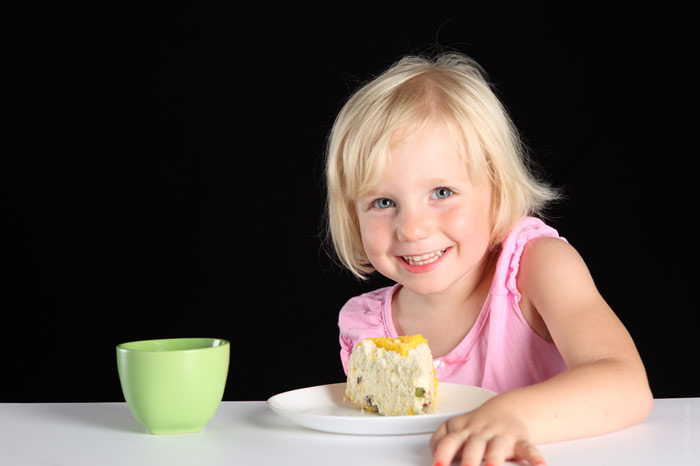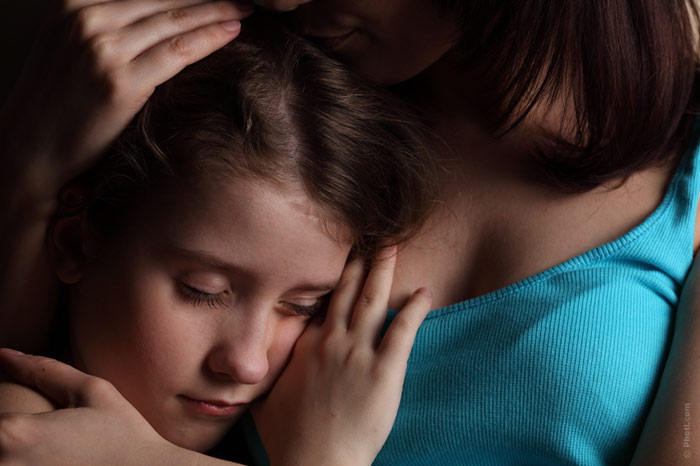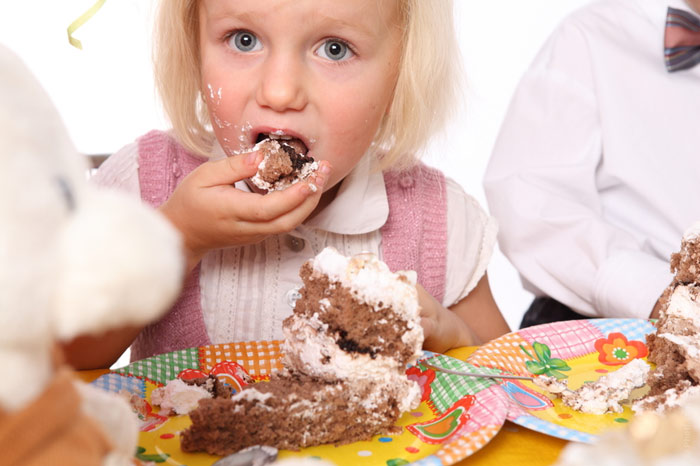Emotional Overeating in Kids
“As soon as you feed them, they go to the refrigerator again”, “He can eat kilograms of sweets”, “She can’t live without sweets” – this situation is familiar to most parents, but it cannot always be called harmless. What problems do food “excesses” and emotional overeating sometimes conceal?
How do kids eat to fight stress?
Let’s start with the fact that “unhealthy” (according to the parents) love for sweets is completely natural for a child. Children need more carbohydrates and sugar than adults because their brains are actively growing, requiring glucose. So it’s okay to give your kids sweets, especially if it is chocolate or cookies with good ingredients rather than refined sugar from candies or soda.
The same allegedly applies to excessive appetite.
The body’s need for calories rises sharply already at the age of 10-11. In adolescence, it increases by almost a third.
Small kids, who used to eat little portions of food frequently in elementary school, suddenly start sweeping everything off the table in the fifth grade. This is where a situation may arise when a child tries to compensate for a lack of calories with sweets or snacks.
Not all parents have time to quickly adapt to this situation. Boys have more luck: they are usually encouraged to eat well and are willingly given extra portions. It is more difficult with girls: parental criticism often becomes a reaction to their “gluttony”. In pre-adolescence, increased appetite and rapid weight gain for girls are just as natural as for boys.
Before the growth spurt that occurs at 11-13 years old, children must gain weight.
A chubby girl of 11-12 years old is often the norm. After a year or two, the child will grow rapidly, the hormones will stabilize and the extra pounds will go away. Before that, it is better to avoid any comments about the daughter’s weight and figure. Of course, if they do not wish her to develop psychological problems, including anorexia nervosa or bulimia (such disorders are common in teenage girls).
The above-mentioned situation does not mean that children do not know how to fight stress and trouble. They do! This model of behavior is successfully instilled in the child by the parents themselves almost from infancy: “Darling, are you crying? Take a candy. Are you in a bad mood? Eat something delicious.” Without finding out the cause of the problem and without trying to solve it in other ways, the baby is immediately gagged with food.
Instead of learning to understand what is really happening, the child simply switches to food. They do not distinguish between when they really want to eat, and when they feel bored, anxious or angry. The stage of realizing their problems and needs is skipped, so children get used to constant chewing, and “yummy things” become a solution to any problem.
Children can see how it works in the family: their mom cheers herself up with a cake, and the tired dad relaxes with a bottle of beer. The child is not offered other ways of mastering his/her emotions and overcoming discomfort.
By adolescence, children can eat to hush anything from sadness to excitement.
There is only one way to change the habitual pattern: by teaching the child how to deal with their feelings and needs. Before handing a comforting candy, you should at least find out what is bothering them and try to fix the situation together. Most likely, both the cause of the problem and its solution will be completely unrelated to food.
The cure for fatigue
Wrong eating habits are not so bad. It is much more serious if food becomes an attempt for the child to overcome nervous tension, overwork, or depression common in adolescents.
Food is a way to replenish energy. When strength is running out, children (and adults too) try to compensate for the shortage by unconsciously leaning on sweets – a source of “quick” calories. There is a sharp increase in blood sugar, but the condition soon worsens even more. If there is a violation of the biochemical processes in the brain, as happens with depression, the energy from food may not reach its destination in the right amount at all. A vicious circle arises: a breakdown – the wrong food – another breakdown.
Overloaded modern children get little rest. It is not surprising that during the period of active growth and hormonal adjustment, there is not enough strength for everything.
By the 7th grade, the loads that the child used to cope with easily become unbearable. The body goes into the energy saving mode, the teenager lies down on the sofa and does not want to do anything.
How do kids eat to fight stress?
If the parents can calm their anxiety at this time, if they stop fighting for grades or allow the child to quit some kind of an interest club, the child will grow up and get off the couch without compromising physical and emotional health. The relationship with food can return to its normal state. If you continue the load, the teenager will overstrain and get sick.
Alarms
What symptoms can tell the parents that food abuse is concealing a child’s psychological or physical problem:
- There appears selectivity in food, even in relation to the favorite products (for example, teenagers often ignore meat).
- The child refuses to sit down at the table with the family, tries to eat alone (this is typical of many teenagers, but the craving for solitude should not be excessive).
- The weight has changed dramatically (in either direction).
- The skin and lips become dry and pale, the hair and nails are brittle, and the smell from the mouth is unpleasant (this is the result of metabolic disorders and lack of nutrients).
- There is pain in the abdomen, nausea, difficulty in swallowing (they often accompany anxiety disorder or depression).
- A teenager began to complain of a headache for no apparent reason (tension headaches are often caused by fear or anxiety).
- The child suddenly becomes whiny or aggressive (both can indicate depression).
- Lethargy and loss of strength continue for more than two weeks.
These symptoms can also be observed in children for natural reasons. For example, tearfulness can be the result of a hormonal storm, and fatigue can be caused by a sudden growth spurt. In any case, it would be useful to visit a pediatrician and a psychologist.
The doctor will first send the child for tests. This will help monitor vital signs, such as hemoglobin (it often drops in adolescents, especially girls), and not miss serious problems – for example, with the thyroid gland.
The psychologist will detect and treat dangerous manifestations that cannot be left without correction. Thus, depression missed in high school or in the final class can lead to hospitalization when coupled with the exam load. Selectivity in food is a signal of anorexia, threatening with serious consequences for the whole organism.
What else can parents do?
Adjust nutrition
The diet of younger students and adolescents should be different. Children under 10-11 years of age need more easily digestible carbohydrates, while teenagers need animal protein, vegetables and “long” carbohydrates that will not lead to glucose surges.
Do not bring sweets into the house
If constant “snacks” with sweets and cookies have become a habit for the child, the only way out is not to buy sweets at all. Other family members will get used to proper nutrition, too. It is better to keep apples, bananas, carrots, and cucumbers on the table, should there be spontaneous visits to the kitchen.
Offer water
Some children drink very little water. For normal well-being, a child needs pure water.
Talk to the child
This universal tip will come in handy in any situation – during visits to the kitchen too. It is possible that the child is simply bored and will gladly replace the snack with hugs and a sincere talk. Moreover, the soul needs food no less than the body.




